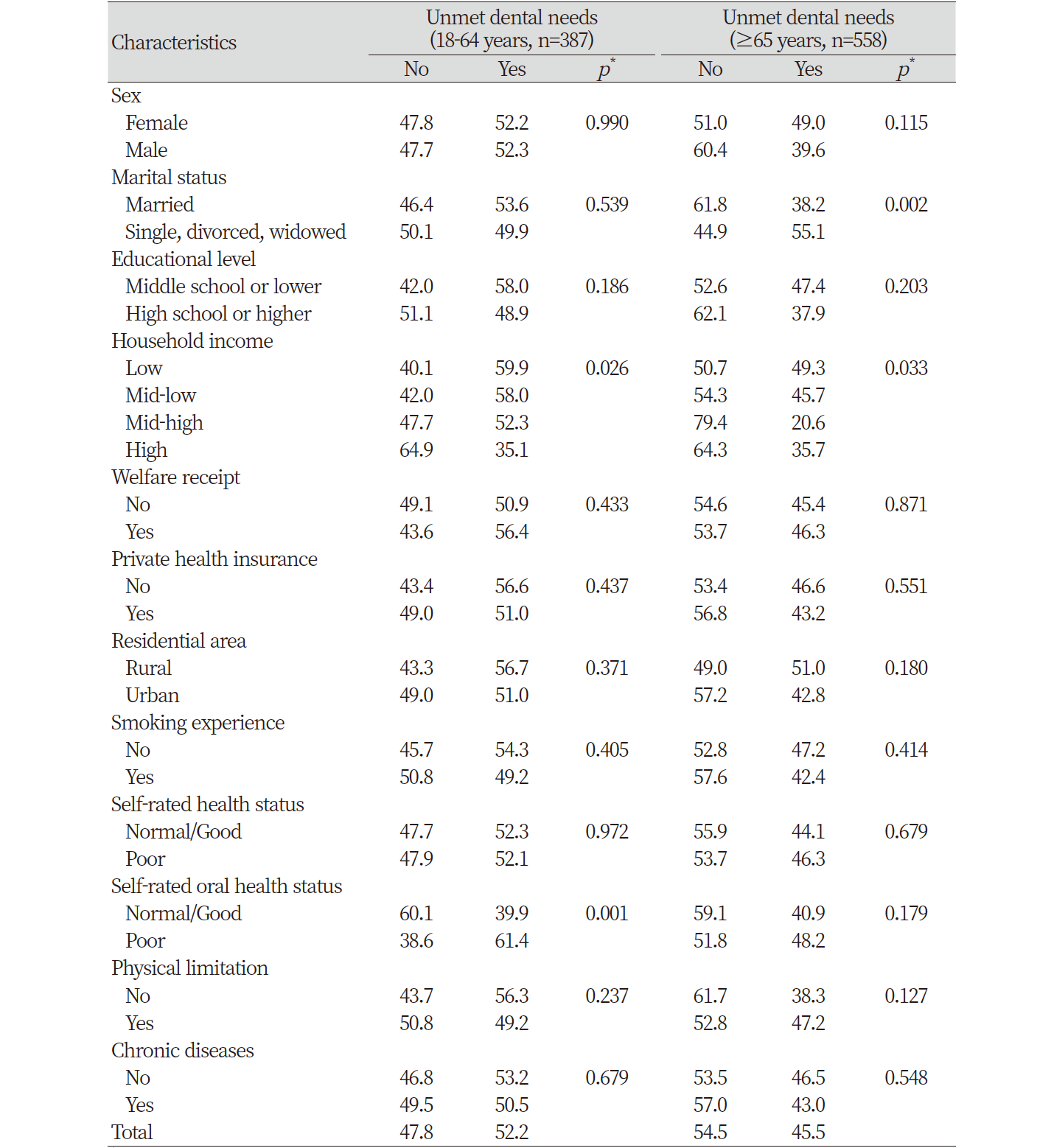Abstract
Objectives: This study aimed to investigate the factors associated with unmet dental needs among adults with activity limitations. Methods: Data were obtained from the seventh Korean National Health and Nutrition Examination Survey (KNHANES). The final sample consisted of 945 adults aged 20 years or older with limited activity. Logistic regression analysis was used to examine the influence of predisposing, enabling, and need factors on unmet dental needs. Results: The proportion of adults with unmet dental needs during the last year was 52.2% in the middle-aged group and 45.5% in the older adult group. Higher household income was associated with fewer unmet dental needs in both groups. In the older adult group, married people were less likely to have unmet dental needs. In the middle-aged group, adults who perceived their oral health as poor were more likely to have unmet dental needs. Conclusions: All three factors (predisposing, enabling, and need) were found to be associated with unmet dental needs among adults with activity limitations. Special efforts should be made to improve access to dental care services for middle-aged adults with activity limitations.
Figures & Tables



